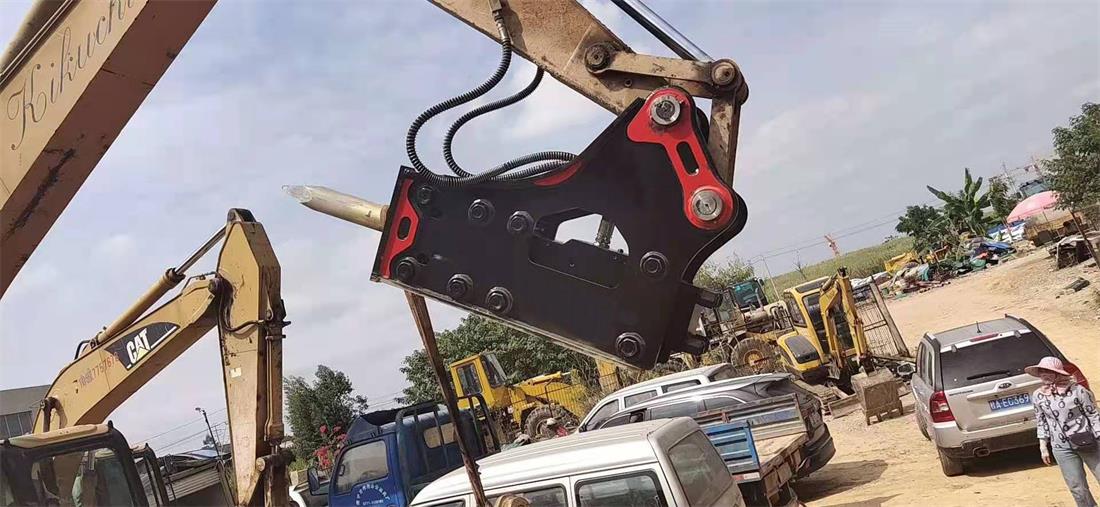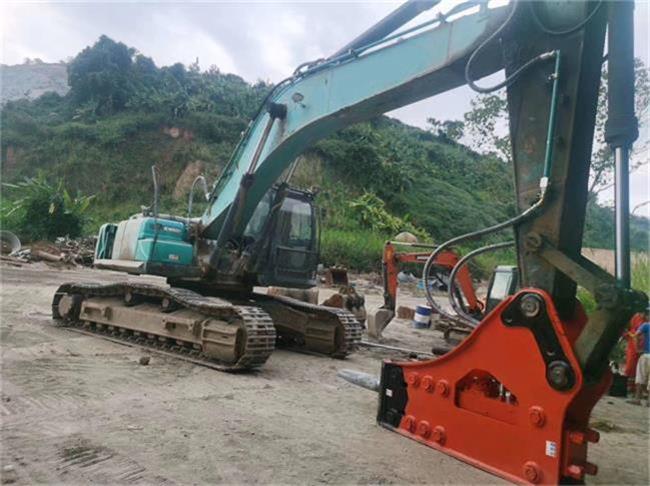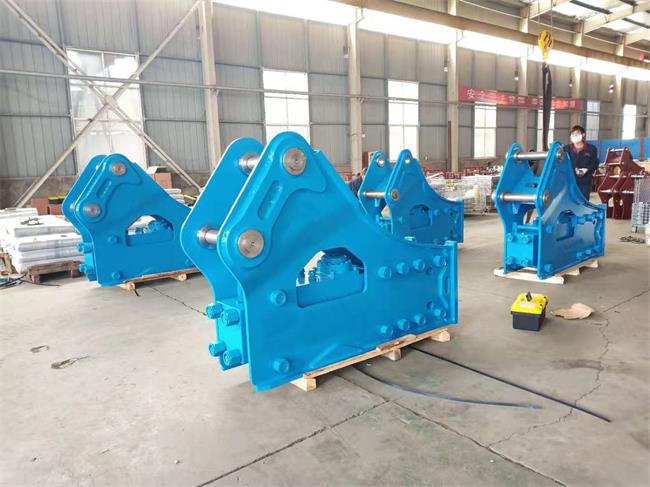 HuiTong
HuiTong  2025-06-13
2025-06-13
What happens if the nitrogen chamber leaks oil?
At first, the blow was slow and without strength, and then stopped. There was hydraulic oil in the rear body, and when the nitrogen gas was released, misty hydraulic oil would spray out.

What happens when the hydraulic hammer for excavator frequency is unstable?
Processing method:
⑴ It may be unstable caused by the problem of the host.
⑵ Too little hydraulic oil and insufficient flow.
⑶ The overflow valve is damaged.
⑷ Piston, control valve, spare valve are slightly strained.
⑸ The pipeline pressure is not enough.
⑹ The pipeline is blocked.
⑺ Instability caused by the reaction force of broken objects.
⑻ The bolt is loose and the size of the steel drill is wrong.
What happens if the oil return is not smooth?
production methods:
⑴The hydraulic hammer for excavator is weak to strike.
⑵The frequency is too slow.
⑶ The oil temperature tends to be high.
⑷ Waste diesel. In addition, it is easy to cause instability of the hammer blow frequency. This kind of situation is likely to happen when the oil return filter element is not replaced according to the specified time, causing the filter element to block and hinder the smooth flow of the oil return path. The oil return pipe directly returns to the multi-way valve. After long-term work, the multi-way valve is easy to issue the hydraulic oil to heat up faster, reducing the impact of the breaker.

What should be checked if the broken hammer pipeline is installed without pressure?
Processing method:
⑴ Check whether the pipeline is installed correctly.
⑵The stop valve is opened to check whether the pipeline has pressure or whether the pressure is normal.
⑶ Check whether the overflow valve is damaged.
⑷ Whether there is enough pressure at port A.
⑸ If all the above are normal, check if the spare valve is stuck.
What are the main reasons for the hydraulic hammer for excavator to issue cards, and how to judge?
Cause:
1. Piston and reversing valve are rough.
2. Issuance of spare valve and relief valve
3. Insufficient hydraulic oil.
4. The oil circuit is not smooth, and it is in a half-blocked state.
5. Insufficient pilot pressure.
6. The bushing gap is too large or a wear.

The production of black oil?
Cause:
The black oil in the hydraulic system of the excavator is not only caused by dust, but also caused by irregular grease filling.
For example: when the distance between the bushing and the steel drill is more than 8 mm (the little finger can be inserted), it is recommended to replace the bushing. On average, every 2 lower bushings needs to be replaced with 1 upper bushing.
When replacing hydraulic accessories such as oil pipes, steel pipes, oil return filters, etc., you need to clean up the dust or debris at the interface before they can be loosened and replaced.
When filling butter, the breaker needs to be lifted, and the steel brazed into the piston. Only half of the standard grease gun is required for each filling. (Because if the steel drill is not pressed tightly when adding butter, the added butter will be at the upper limit of the steel drill slot. When the steel drill is working, the butter will directly jump to the main oil seal of the breaker. The reciprocating motion of the piston brings the butter into the cylinder of the breaker, and then mixes with the hydraulic oil in the cylinder of the hydraulic hammer for excavator into the hydraulic system of the excavator. The hydraulic oil is deteriorated and blackened)
Approach:
1. Use the butter position correctly.
2. Install oil return filter device.
3. Install water spray device to reduce external dust.
4. The upper and lower bushes are worn too much, so replace the bushes in due course.
5. If the intake check valve is broken or blocked, check the check valve regularly. 6. Replace the dust seal in time.
7. Use the breaker correctly (don't hit it too often).
8. Pay attention to whether the size of the steel drill matches the bushing.
The above is what we have summarized for you about the relevant content of the hydraulic hammer for excavator, and we will bring you more content related to the excavator industry in the future.